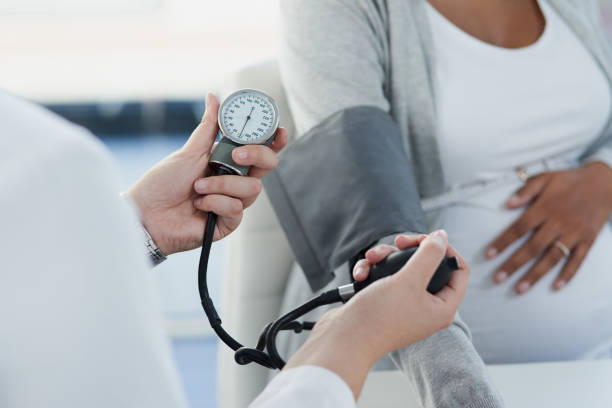Is low blood pressure OK in pregnancy?
Low blood pressure during pregnancy is normal. The condition usually isn't something to be concerned about unless you have symptoms. If you do experience bothersome symptoms of low blood pressure, let your doctor know.
When should I worry about low blood pressure pregnancy?
Typically, low blood pressure during pregnancy is not dangerous. However, extremely low blood pressure, especially when associated with other symptoms, may be a sign of ectopic pregnancy or other serious medical issues. If your blood pressure reading is lower than normal, see your healthcare provider.
Pregnancy is a very intensive, yet delicate stage in a woman’s life. It causes major hormonal changes, changes to the mother’s appearance, diet, tolerance, and drive. In these times, it is very common for pregnant women to experience fluctuations in their blood pressure.
Most women experience low blood pressure during pregnancy and this spans out in the first 24 weeks of the gestation period. Low blood pressure occurs as a result of more blood being rerouted to the fetus.
It also occurs as the blood vessels expand in this stage to accommodate more blood.
Sometimes, low blood pressure occurs because of sitting or lying down for too long or because of spending prolonged periods in hot water tubs.
During their pregnancy, women are advised to regularly consult a doctor and take all the recommended tests to ensure that no condition is left unattended that could cause damage to the mother or the fetus.
Other factors that could cause low blood pressure during pregnancy are:
- Allergic reactions
- Neurological factors
- Shortness of breath
- Nausea
- Fatigue
- Dehydration
- Lack of oxygen to the blood
- Ruptured arteries
- Problems with the heart
- Blood clots
- And other Endocrine gland related issues.
Few medications are also known to lower the blood pressure in women. Hence, it is essential that pregnant women keep their consulting doctors informed about the medication they are taking so that any new medication that gets prescribed does not react with the existing regime.
120/80hgmm is considered as the normal blood pressure of any human. However, it is known that blood pressure tends to drop in the first 24 weeks of pregnancy. Considering this, pregnant women are asked to contact a medical practitioner or get medical help immediately if the blood pressure drops below 90/60hgmm.
Symptoms of low blood pressure during pregnancy:
Low blood pressure can present itself in various ways. They are:
- Dizziness
- Fatigue
- Fainting after standing up quickly
- Vision impairment (blurry or double vision)
- Shortness of breath
- Feeling of constant thirst even after drinking water
What effects could low pressure have in pregnancy?
The effects of low pressure on pregnancies are more indirect than direct. Often, due to fatigue and shortness of breath, the pregnant mother could faint and fall causing internal bleeding and injury to the baby leading to irreparable damage to the fetus.
Low blood pressure could reduce the rate at which the fetus receives a continuous supply of blood. Low blood pressure in pregnant women could cause brain damage to the fetus and could also result in stillbirth in a few cases.
Treatment options:
In most cases, a special treatment regime is not required to treat low blood pressure in pregnancy as the blood pressure returns to normal after the third trimester.
In a few cases, depending on nature and the gestation period, there are few medications recommended to treat the underlying reason that is causing the drop in blood pressure. They include hormone boosters and anemia.
Vitamin B-12 can help resolve the anemia and resume the full functions of the blood cells.
There are a plethora of other home remedies that pregnant women can consider to avoid any occurrences of low blood pressure in this period. They are:
1. Diet:
Eating a healthy and nutrient diet can help in regulating constant blood pressure in pregnant women. Consuming fruits and vegetables that are rich in vitamins and minerals can prevent any episode of low BP.
Breaking down your meals into shorter meals at regular intervals instead of eating heavy meals at once.
2. Exercise:
Exercise can have a tremendous impact on regulating Hypotension in the body. However, few patients could experience dizziness and fatigue. It is advised to consult a medical practitioner before beginning any high-intensity workout regimes during pregnancy.
3. Adequate rest and systemic breathing:
Pregnant women and their caregivers must be aware of the condition and how the blood pressure could fluctuate during pregnancy. Hence, the patient mustn’t involve herself in any swift/jerky movements after lying down/sleeping or sitting for a long time.
Lying down and taking rest always helps in regulating the heartbeat. Sleeping on the left side, and wearing loose-fitting clothes helps.
4. Liquids:
Dehydration is a major contributor to low blood pressure in pregnant women. Consuming green tea and liquids can help eliminate symptoms like vomiting and nausea during pregnancy.







